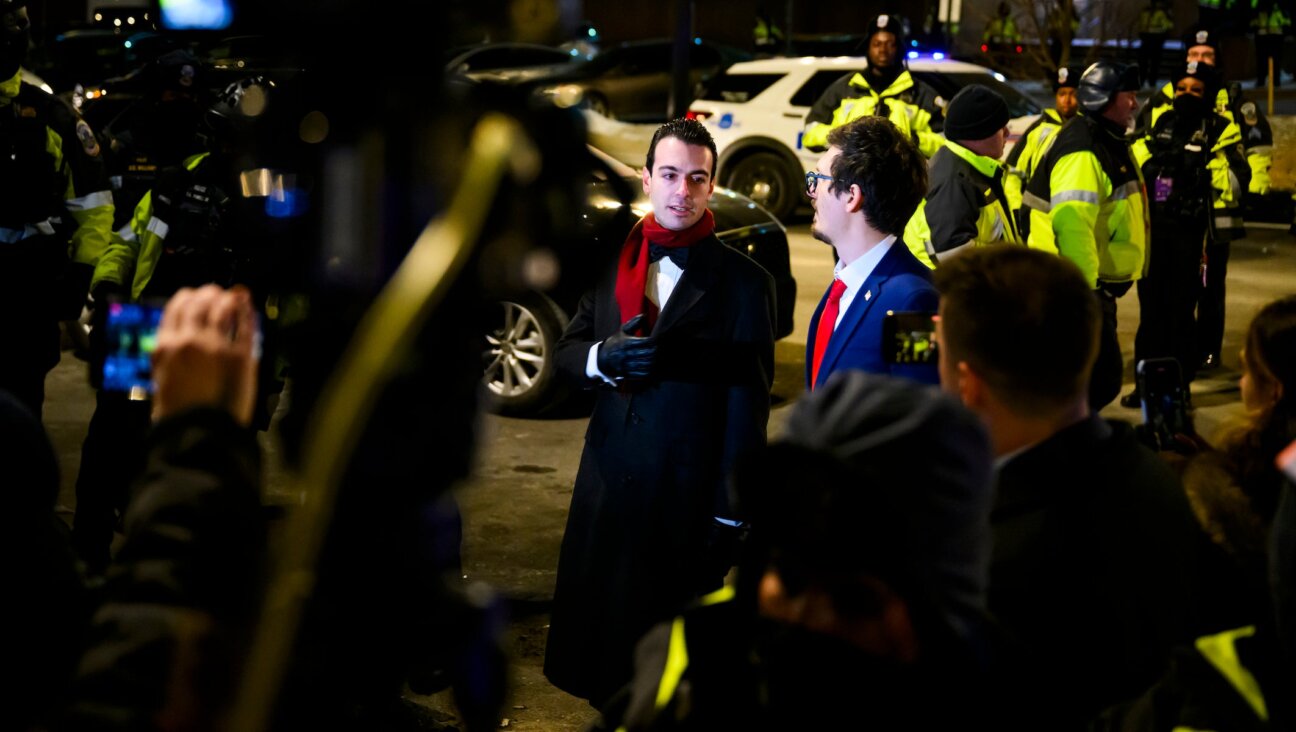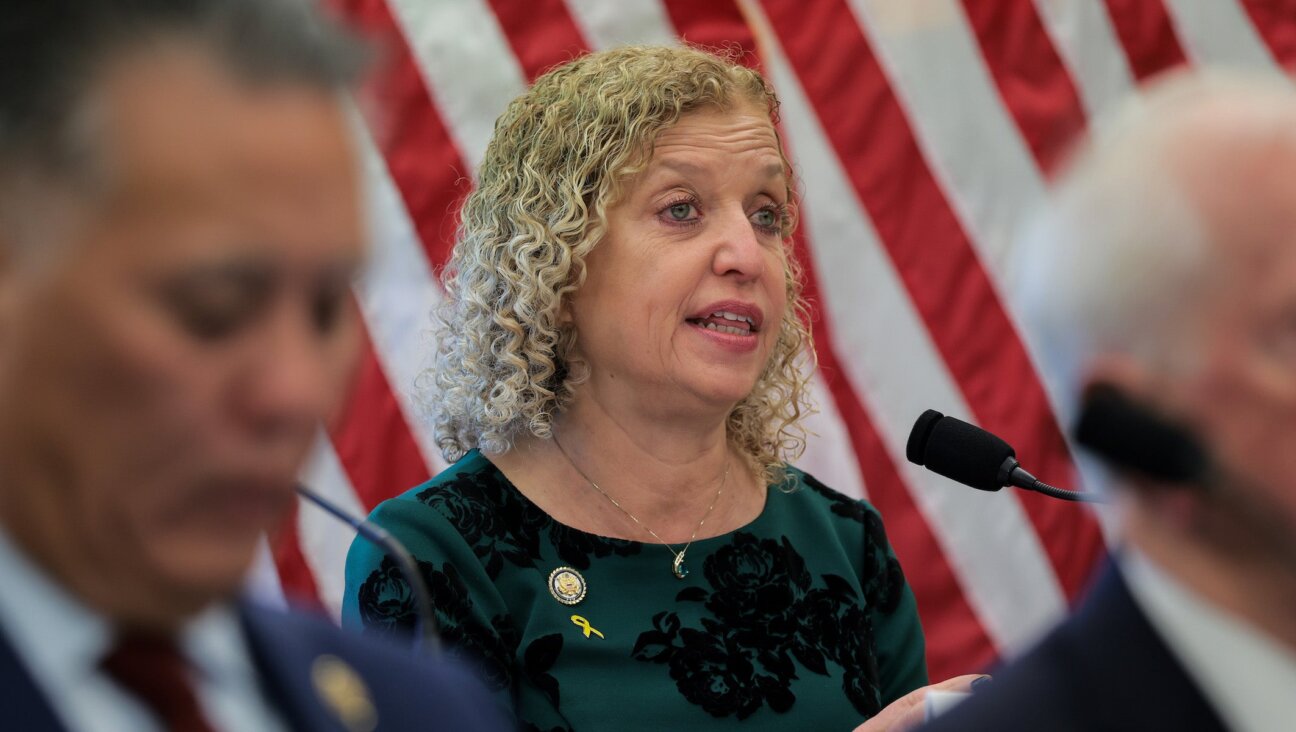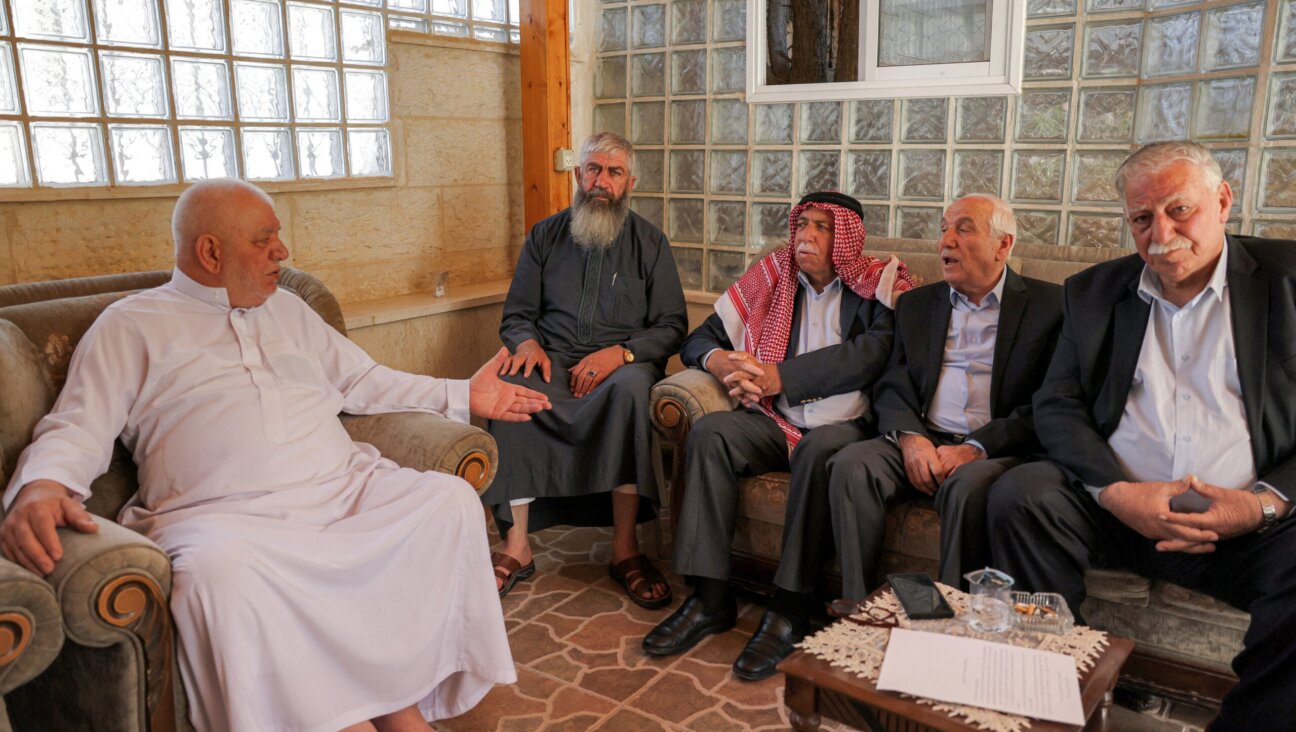Despite court ruling, Israel tells some converts they don’t attend synagogue often enough

A Jewish man praying during services. (iStockPhoto)
This article originally appeared on Haaretz, and was reprinted here with permission.
March 1 will mark a year since the landmark High Court of Justice ruling that recognized non-Orthodox conversions performed in Israel for the purpose of the Law of Return.
In theory, the decision meant that any individual converted in Israel by either the Reform or Conservative movements is now eligible for citizenship under the Law of Return. The Reform and Conservative movements, which often complain about discrimination in Israel, were quick to hail this ruling as a major breakthrough and a small step forward in their ongoing struggle for legitimacy and recognition.
Once the ruling was handed down, it had been widely assumed that those individuals who had undergone Reform and Conservative conversions in Israel, and who had been waiting patiently for years for the outcome of the court case, would automatically receive their citizenship papers.
That hasn’t happened, though. In fact, only a relatively small number have.
The group of petitioners who brought the case to the High Court back in 2005 all received citizenship within a month of the ruling, with few or no questions from the Interior Ministry.
The original group consisted of 11 petitioners, but several left Israel or received citizenship by other means, so the ruling was ultimately relevant for only eight of them. All eight had received temporary residency status because they were married to Israelis, but had lost their right to citizenship either because they later divorced or their spouses died.
But another 30 converts with similar stories, who had been granted special permission to stay in Israel until the case was decided, have not been as lucky.
Like the original petitioners, these 30 converts had been married to Israelis and were able to obtain temporary residency status. But because their marriages eventually failed or they were widowed, they were no longer eligible for Israeli citizenship through the process of “family reunification.” Only if their conversions were recognized, therefore, would they be able to avoid deportation.
Because they were given special permission to stay in Israel until the court ruling was delivered, these 30 converts – known as “the group in waiting” – assumed they would be treated exactly like the original petitioners and obtain their citizenship papers quickly.
But among this larger group, only four converts have thus far been approved for citizenship under the Law of Return, 17 are still awaiting responses from the Interior Ministry and nine have been rejected. The grounds for rejection in many of these cases were that the converts did not attend synagogue regularly.
The Israel Religious Action Center – the advocacy arm of the Reform movement in Israel that represented the original petitioners as well as the group in waiting – is now challenging the Interior Ministry on the matter.
‘Genuine’ motives
Under the Law of Return, any Jew by choice who has converted abroad in a “recognized Jewish community,” regardless of the denomination, has the right to immigrate to Israel and receive automatic citizenship. Until a year ago, the Law of Return distinguished between two categories of non-Orthodox converts: those who had converted abroad and were eligible for aliyah and automatic citizenship, and those who had converted in Israel and were not.
Among those who had converted abroad, the Interior Ministry required that they be active in their local Jewish community for at least nine months before making aliyah, so as to ensure that their motives for converting were genuine.
The ministry has decided to apply this same rule to conversions performed in Israel, but much more forcefully. It is now seeking proof that all those converted by the non-Orthodox movements, who are applying for citizenship under the Law of Return, provide proof that they have attended synagogue regularly since they converted. In certain cases, that requires proof of synagogue engagement for as long as 15 years.
“We do not believe this rule should apply in Israel, which as a Jewish state is a unique community,” said attorney Nicole Maor, director of the Legal Aid Center for Olim at IRAC. “Indeed, it is one big Jewish community and by virtue of the fact that they are living here in Israel, these converts are actively involved in a Jewish community.”
IRAC recently sent a letter to the ministry requesting that it not apply this rule in Israel. It has also sent a letter to the Attorney General’s Office charging that the ministry has misinterpreted the essence of the High Court ruling in its treatment of the group in waiting. According to Maor, it has not received responses to either of these letters.
Some of the converts were rejected on the grounds that their conversions were deemed fictitious and undertaken for the sole purpose of obtaining status in Israel.
IRAC has appealed all the rejections with the ministry. Except for one case, in which the appeal has already been rejected, the ministry has yet to respond to the appeals. IRAC is now appealing the one final rejection in Jerusalem District Court.
Asked for comment, Tomer Moskowitz, director of the ministry’s Population and Immigration Authority, said: “It is my job to establish that these were proper conversions and that there were no grounds for disqualifying them – such as, their being done for the sole purpose of obtaining status in Israel. We need time to respond to all the requests, but have already begun handing out our responses. Some people have been happy with these responses, others have not. But we are by no means trying to trick the High Court or to circumvent its ruling.”
The Reform and Conservative movements together convert about 250 people a year in Israel. The vast majority of these are already eligible for citizenship under the Law of Return, since they have at least one Jewish grandparent. Only about 10 percent every year are not eligible under the Law of Return.
Because the non-Orthodox movements, as a matter of principle, do not convert tourists or asylum seekers, this small group consists mainly of spouses or partners of Israelis who have temporary residency status.
Spouses and partners of Israelis are eligible for citizenship under the family reunification process, but this process is not automatic and can take anywhere from four-and-a-half to seven years. Of those converts who are not eligible for citizenship under the Law of Return, the majority eventually obtain citizenship through this process. The exceptions, for whom the High Court ruling is most relevant, would be those whose relationships have fallen apart. Until a year ago, these converts would have lost their right to Israeli citizenship and faced deportation.
Breaking the monopoly
The High Court ruling came in response to the 2005 petition submitted on behalf of a group of temporary residents who had been converted by the Reform and Conservative movements, but whose requests for citizenship under the Law of Return had been denied by the Interior Ministry.
The case dragged on for many years, during which time several unsuccessful attempts were made by the state and the non-Orthodox movements to reach an out-of-court agreement.
In a separate case in 2016, the High Court ruled – despite strong opposition by the Chief Rabbinate – that temporary residents converted by private Orthodox rabbinical courts are eligible for citizenship under the Law of Return.
Following this ruling, which effectively broke the Rabbinate’s monopoly over conversions in Israel, IRAC returned to the court and asked that its case be reevaluated in light of the precedent that had been set. If private Orthodox conversions can be recognized for the purpose of the Law of Return, IRAC’s lawyers told the court, then private conversions performed by the non-Orthodox movements should too.
“This is a civil matter and not a religious matter,” Supreme Court President Esther Hayut wrote in the ruling. “The petitioners came to Israel and went through a conversion process in the framework of a recognized Jewish community and have asked to join the Jewish nation.”
The Interior Ministry has also rejected the citizenship application of the one and only Jew by choice who converted after the High Court ruling.
In December, it turned down the request submitted by Yosef Kibita, a member of the Ugandan Jewish community who was converted through the Conservative movement. He was the first member of the 2,000-strong Abayudaya community to apply for citizenship under the Law of Return.
Kibita, who had been living in Israel for four years, had already converted twice in Uganda. He underwent a third conversion in Israel, at the recommendation of the High Court, after a previous citizenship application had been rejected.
The ministry said the second application had been rejected because the Conservative rabbinical court in Israel had decided to convert Kibita without requiring him to go through any further studies program. IRAC is contesting the decision.
Although the High Court ruling recognized non-Orthodox conversions for citizenship purposes, these conversions are not recognized by the Rabbinate. As a result, Reform and Conservative converts – whether the conversions took place in Israel or abroad – are prohibited from marrying in Israel.
This article originally appeared on Haaretz, and was reprinted here with permission.























